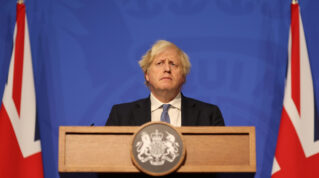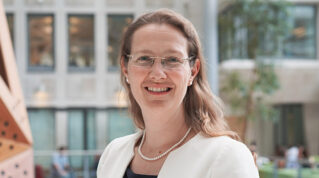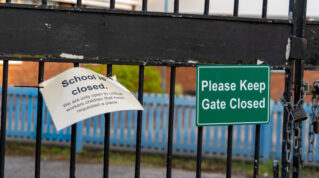The pandemic has “severely widened existing inequalities” between poorer pupils and their better-off peers, a report on the impact of Covid has found.
The COVID Social Mobility & Opportunities (COSMO) study surveyed more than 13,000 pupils across England who were in Year 11 in 2021 and have now just entered Year 13.
The study was led by the UCL Centre for Education Policy and Equalising Opportunities, the UCL Centre for Longitudinal Studies and the Sutton Trust.
1. Schools with poorer pupils had fewer live lessons
There were “substantial inequalities” between schools offering remote learning during the lockdowns. Just 65% of state school pupils had live online lessons in the first lockdown, compared to 96% of independent school pupils.
But when schools locked down a second time last year, significant inequalities opened up within the state school sector. While 96% of grammar schools and 95% of affluent comprehensive schools managed to offer live lessons remotely, only 80% of schools with the most deprived intakes did so.
2. Many laptops didn’t arrive in time …
At the end of lockdown one, 61% of pupils who didn’t have a suitable device at the start of the pandemic were still waiting to receive one.
But even by the end of the second period of school closures in 2021, more than half (53%) of pupils who did not have a device at the beginning of the pandemic still had not received one.
3. … and those without did less schoolwork
Pupils who only had access to a mobile phone worked 10 hours a week on average in the first lockdown.
Those without any devices at all worked even less – just eight hours a week on average.
But those who did have access to a laptop or table worked an average of 14 hours per week.
Remote learning barriers – such as lack of access to devices, quiet space in the home, or support from parents or teachers – were all more likely to be experienced by pupils from poorer households.
4. Private school pupils more likely to have tutor offer
Even with the existence of the National Tutoring Programme, private school pupils were more likely to have been offered tutoring (52% vs 41% in comprehensive schools). However they were less likely to have taken part in tutoring than their comprehensive school peers.
This reflects that “students in private schools were less likely to feel that they needed this help”, the report suggests.
5. Most young people got catch up help …
Overall, most young people (53%) have taken part in at least one type of ‘catch-up’ activity.
Half (50%) were offered additional online classes and 45% were offered additional in-person classes, with around 30% taking up these offers.
Schools with the highest intakes of free school meals (FSM) pupils were the most likely to have taken part in catch-up, at 61%, compared to 48% of those in the least deprived state schools.
6. … but more state school pupils fell behind
Over a third (37%) of comprehensive school pupils said they have fallen behind their classmates due to the pandemic. That’s more than double the figure for independent school students (15%).
Pupils in the most deprived state schools were the most likely to report feeling behind their classmates (45%). This compared to less than one in three (31%) pupils in the most affluent state schools.
Almost two-thirds of youngsters said they had changed their education plans since the pandemic hit – with girls, those from poorer households and comprehensive pupils likely to change course.














Of the 30+ laptops my school gave out, only one got used for a significant amount of home learning. The desire to learn is actually the driving factor here.
I really don’t get why schools in deprived areas provided less online learning. Was there a difference between primary and secondary? And more importantly why?